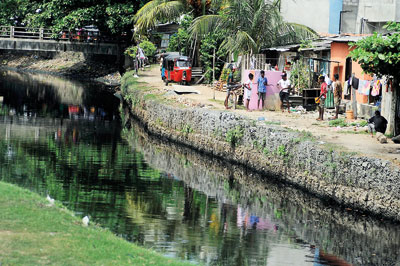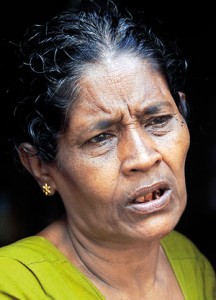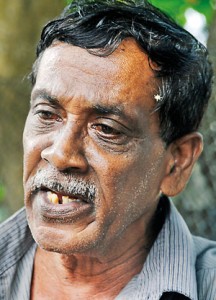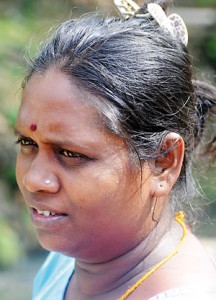News
Municipalities dodge public bullets in the fog of dengue war

The area alongside the canal at Saranankara Road, Dehiwala. Pic by Amila Gamage
Scheduled home visits by municipal council workers to help destroy breeding sites of the deadly dengue mosquito are unheard of, several residents of high-risk areas Dehiwala and Mount Lavinia, complain.
Municipal council officials, however, shift the responsibility by accusing residents of not allowing workers into premises to spray insecticide and clean drains where water is believed to stagnate.
The dengue virus menace spread by the Aedes aegypti mosquito, continues to resist many efforts – often half-hearted – to contain it. So far, 49,225 dengue cases have been reported island-wide and 52 per cent of cases are from the Western Province.
More than 14,000 cases have been reported from Colombo, 6,178 from Gampaha, and 3,827 from Kandy. There have been 3,207 in Kalutara, 2,617 in Galle, and 2,891 from Moneragala.
High-risk areas include the districts of Colombo, Gampaha, Kandy, Kalutara, Kalmunai, Kegalle, Kurunegala, Matara, and Puttalam.
In Colombo, the high-risk areas are Dehiwala, Mount Lavinia, Kaduwela, Homagama, Kolonnawa, Wattala, Ja-ela, Kelaniya and Divulapitiya.
The Medical Officer of Health at the Dehiwala Municipal Council, Dr S.M.R Odayar, said two teams of 20 are tasked with cleaning of drains once a week and spraying of insecticide once in two weeks. He alleged that residents do not allow workers into their premises and was not pleased with uncivil habits.
“We collect the garbage on the roads every day, but people throw garbage even after we collect the waste,” he said. Dr Odayar advises residents to clean drains inside bathrooms as well as water that stagnates on roof gutters.
He said residents had been informed of home visit dates through leaflets. “We have also launched a one-month programme, visiting houses in the area on Saturdays and Sundays.’’
However, when the Sunday Timescontacted several residents of Mount Lavinia and Kalubowila, they were unaware of it. Most complain that the garbage is never collected and insecticide is not sprayed.

M. Nagamma
Dehiwala resident, M. Nagamma, 70, last witnessed fogging seven months ago and is worried about recent dengue infections. “We have made representations to the Road Development Authority and the Municipal Council but to no avail.’’
Kalubowila resident, P Jayalakshmi, laments that her husband had been a dengue patient for more than a week. “At Kalubowila Hospital, he was compelled to lie on a bench in the verandah of the ward.’’
W. P. Gamini, 66, said after two family members died from dengue, she had been urged to relocate. “Authorities rarely come and fumigate and there is no one to monitor.’’
He suggested that the Environment Ministry file action against local government bodies that fail to fulfil garbage collection responsibilities.
“Public Health Inspectors come once in a while, give warnings, and go. There are many dengue patients in this area and the authorities’ actions are inadequate,” he complained. Residential premises are rarely inspected, he added.
When asked why insecticide spraying had been halted, the MOH Dr Odayar, said that it was filaria and not dengue that could be contained through this method.
“Fumigating also has bad effects,’’ he said. “But if there is an epidemic where five or six people in the area have fallen ill, fumigating will be carried out.’’ He advises families to keep their premises clean. “They do not pay much attention to their home gardens, but expect the PHI to clean their gardens, which is impractical.’’
A senior official of the National Dengue Control Unit, Dr. Preshila Samaraweera, said schools and state institutions are notorious for being locations of mosquito breeding sites. “As much as 70 per cent of schools in the Western Province are guilty of breeding mosquitoes.’’ Schools should hire workers to clean gutters and the roofs, he advised.
A senior official of the Police Environment Protection Unit, said officers will assist municipal workers during inspections of premises.
When the Sunday Times contacted several local authorities elsewhere about their responsibilities for public health, many appeared only too eager to blame the public.
An official at Hambantota Municipal Council pointed to people being the primary cause of the spread of dengue.

W.P. Gamini

P. Jayalakshmi

